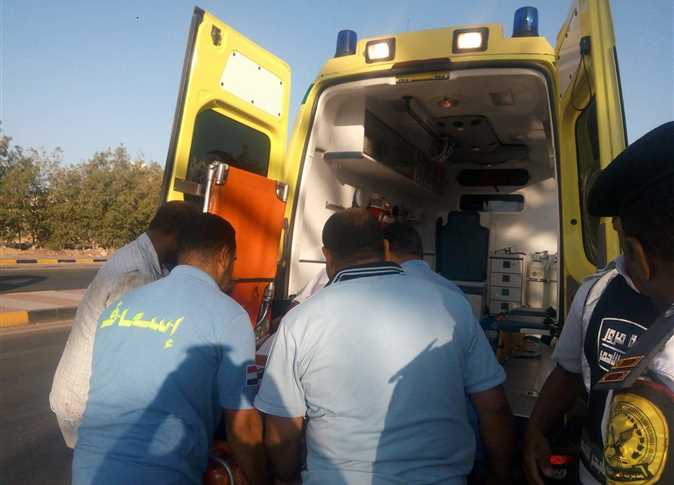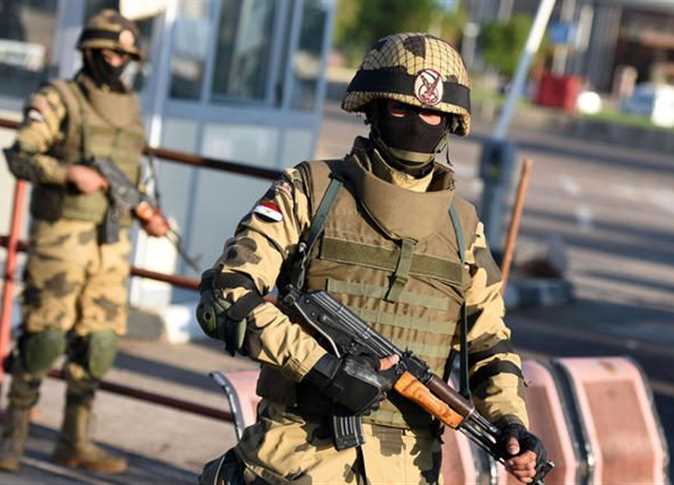
The Suez military court condemned Morsy supporters on Tuesday with life sentences on charges ranging from attacking military personnel to burning down churches in the city of Suez, roughly 124 km north of Cairo.
Contrary to media reports, nine defendants were sentenced to 15 years in jail over charges of attacking military personnel. Two others, including Mohamed el-Sayyed, were given a harsher penalty of 25 years for attacking both military personnel and stealing weapons, according to the defendants' lawyer, Helmy Mossa.
Forty-five others were sentenced to 5 years each over charges of clashing with army soldiers, while 12 defendants were acquitted in what may be the first military trial since Egypt declared a state of emergency on August 14.
Military prosecutors have accused the defendants of inciting and assisting in the killing of citizens in Suez. They were also accused of setting fire to three churches and five military vehicles. Following the sentencing, defendants were transferred to the heavily guarded Ataqa prison for civilians in Suez.
Helmy confirmed that the sentences were meant to deter Morsy supporters from protesting, yet he expected "it will exacerbate the situation" as no concrete evidence proved their involvement in clashes with the army. Helmy claimed that "no one was caught red-handed; they all were indicted according to just testimonies."
Human rights lawyer Mohamed Hanfi who is based in Ismailia has a different account. He said, "Some were caught red-handed throwing Molotov cocktails at army vehicles before attacking churches." Hanfi believed the attacks were in reprisal for the security's deadly break up of pro-Morsy sit-ins on August 14, 2013 that left hundreds killed and thousands injured and arrested.
Apart from clashes against the army, Suez witnessed sectarian violence by Morsy supporters. On the day security cracked down on Morsy encampments in Cairo, Franciscan Fathers, Good Shepherd and Evangelical churches were set ablaze in Suez and their contents destroyed, according to eyewitnesses. The attacks on the churches wounded the priest of the Good Shepherd church and a number of workers at the other two churches.
"Almost all cases considered by the military court in Suez were indicted, maybe because it is a sensitive area, but as human rights activists we reject any civilians- no matter what their affiliation are- to be tried before military tribunals," said Hanafi.
The defendants’ lawyer, Helmy Mossa, was upset with human rights organizations and civil society for keeping a low-profile in this case in particular. He affirmed that security arbitrarily arrested innocent people, the majority of whom were craftsmen, and several people who were not closely affiliated to the Muslim Brotherhood. "Some were hiding in neighboring buildings from fire, and got arrested by mistake," he claimed.
Egyptian Initiative for Personal Rights lawyer Mohamed Hanafi has not ruled out the possibility that the verdict is politically motivated to threaten other pro-Morsy protesters against any involvement in riotous acts.
"It does not make sense that the plaintiff is the military and the judiciary also from the military. In that sense, why were the people who clashed with the army outside the headquarters of the Republican Guard in Cairo not put before a civilian court," said Hanafi.
The leader of the Third Field Army in Suez has the right to commute the sentence or refer it to a civilian judiciary before endorsing the verdict. With this legal basis, defendants lawyer Helmy Mousa said that he would file a petition and appeal the decision.
The military tribunal is the first of its kind to try the Muslim Brotherhood since the 25th January uprising that led to Mubarak ouster.
Senior leaders in the Muslim Brotherhood and Mohamed Badie are now in detention, where they have been since the ouster of former President Mohamed Morsy on July 3. Badie, Supreme Leader of the Muslim Brotherhood, was arrested on August 20.
The detained Brotherhood leadership faces a host of charges, including instigating murder and torturing anti-Morsy protesters in December 2012. They are also being charged with inciting violence, damaging public and private property, and attacking security and army personnel at the Republican Guard compound in northeast Cairo last July.
Plaintiffs had accused them of threatening national peace and spreading lies and false information to stir tension and cause panic.
Mossa, who represents 6 of the defendants, thought that the sentences were a message to punish Suez citizens for “triggering the first spark of 25th January revolution."
Later today, Morsy supporters in Suez protested over the verdicts issued early today against Muslim Brotherhood sympathizers, calling for their release.
The new sentences against Morsy supporters are likely to settle the volatile situation in Suez. "Pro-Morsy protests have relatively decreased after arresting the defendants. Now, I see no protests at all," said Hanfi.
Separately, the military in Sinai mounted air strikes using Apache helicopters in north Sinai's Sheikh al-Zuwaid on Tuesday. The strike claimed the lives of 8 suspected militants and wounded 15 others. In addition, three were arrested, army sources said. Military operations targeting Jihadist elements in the Sinai region are still on going.
Earlier in the day, the Egyptian administrative court ruled that the Qatari-owned, Al-Jazeera, Mubasher Misr and three other channels would be shut down on Tuesday.
The other three channels are Al-Yamrok, Al-Quds and Ahrar 25, which were seen as taking the side of pro-Morsy protesters.
Al-Jazeera, which was hailed by Egyptians after Mubarak’s ouster, has faced a nation-wide hostility since Brotherhood-backed, Morsy was deposed. Its offices have been raided with dozens of staff detained.




